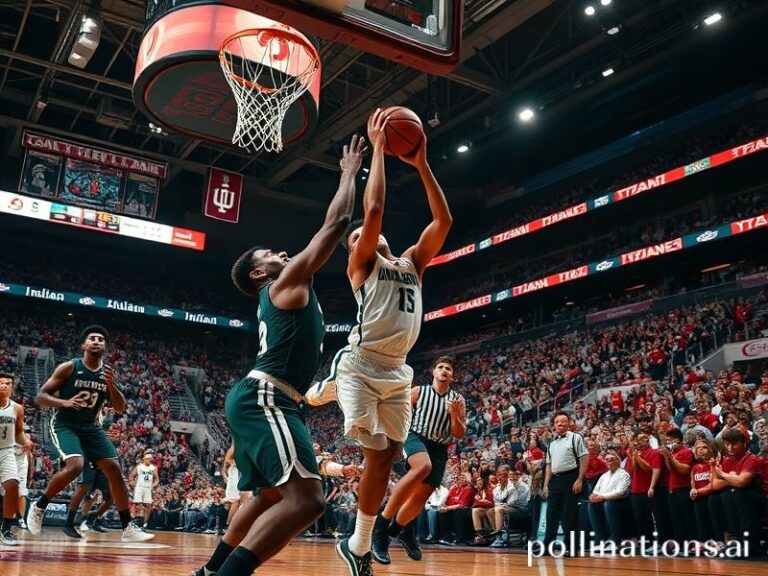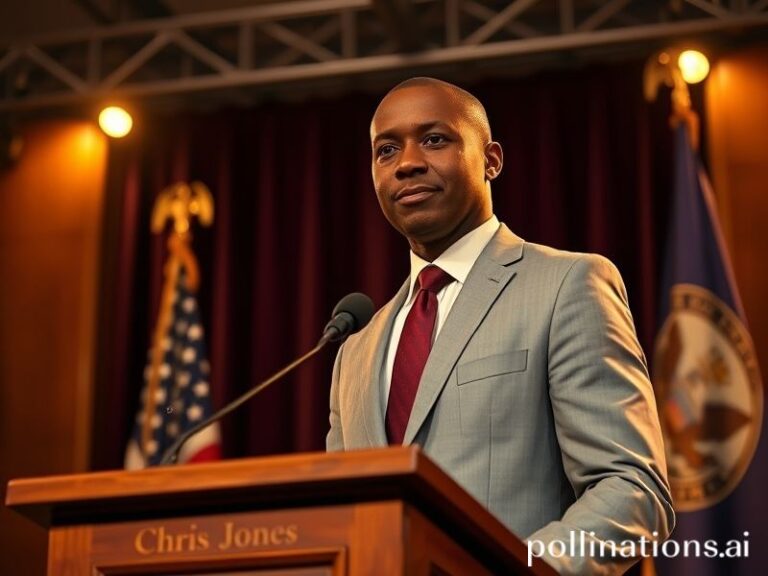DeAndre Hopkins: Global Trade Asset Masquerading as a Wide Receiver
In the grand theatre of American football—where grown men in tight pants pummel each other for the fleeting glory of a ring and the eternal glory of fantasy-football bragging rights—DeAndre Hopkins has always played the role of reluctant protagonist. Picture a man who catches footballs the way Swiss bankers catch tax-evading dictators: effortlessly, with the faintest smirk that says, “Yes, I know exactly what this is worth on the open market.” Now imagine that same man suddenly available to the highest bidder, and you begin to grasp why, from Lagos to London, the planet’s sports pages are humming like a poorly grounded espresso machine.
Hopkins’ trade from Arizona to Tennessee (and then his subsequent release this spring) is not merely another NFL transaction; it is a geopolitical Rorschach test in shoulder pads. To the casual observer, it looks like a 31-year-old wide receiver looking for a new office. To the rest of us—those who’ve watched global supply chains buckle, crypto empires evaporate, and democracy itself play an extended game of three-card monte—it looks like the distilled essence of 2024: a supremely valuable asset wandering the marketplace while everyone wonders if the bubble is finally popping.
Consider the optics abroad. In Seoul, where esports champions are treated like deities, Hopkins’ precise route-running is compared to a StarCraft pro’s APM—except the stakes are ACLs instead of carpal tunnel. In Buenos Aires, where inflation makes every peso feel like a punchline, fans marvel that an athlete can still command a salary denominated in guaranteed millions rather than wheelbarrows. Meanwhile, somewhere in the Gulf, an oil-soaked sovereign wealth fund quietly asks its consultants whether buying an NFL franchise might be more reliable than buying another Premier League club or, say, a struggling golf tour.
Hopkins himself remains diplomatically opaque. He posts workout clips filmed in picturesque locales—Dubai dunes one week, a volcanic black-sand beach the next—each clip soundtracked by moody trap beats that translate in every language to “I’m open, throw me the damn ball.” The subtext is universal: scarcity drives desire. By refusing to chase the first suitor with cap space, Hopkins is leveraging the same playbook used by OPEC ministers and luxury-watch brands: withhold supply, stoke demand, watch the bidding war climb like the global temperature.
Yet beneath the glossy veneer lies a darker punchline. Hopkins’ career arc coincides neatly with the decade in which we learned that nothing—nations, currencies, social media platforms—has any truly fixed address. The Cardinals giddily signed him to a $54 million extension in 2020, back when the world still believed tomorrow would look like yesterday. Two pandemics, one insurrection, and several crypto winters later, that contract is a cautionary tale taped to every GM’s laminated risk-assessment chart. If a top-ten receiver can be cut for salary-cap convenience, what hope is there for the rest of us clinging to our 401(k)s and remote-work fantasies?
Still, hope—or its cheaper cousin, delusion—springs eternal. Rumor has it that Buffalo, Kansas City, and even dark-horse Baltimore are courting Hopkins the way beleaguered governments court favorable IMF terms. Each fan base feverishly photoshops him into local jerseys, a ritual as old as civilization itself: grafting the face of a savior onto the body politic. Should he land with a contender, global jersey sales will spike, sportsbooks will recalibrate futures markets from Macau to Malta, and somewhere a factory in Vietnam will work overtime stitching number 10 on midnight-blue fabric—proof that late capitalism can still manufacture transcendence, provided the thread count is high enough.
So here we stand, citizens of a planet that can’t quite decide whether it’s ending or merely rebranding. DeAndre Hopkins keeps running routes against the sunset, the football hanging in the air like a debt ceiling nobody really believes in anymore. Someday he’ll drop it—age, gravity, or the inevitable congressional hearing will see to that. But until then, watch closely. Every snag is a small, defiant act of order in a world that’s forgotten the playbook. And if you listen carefully, above the crowd noise and the hot-take podcasts, you can almost hear the universe mutter: “Good catch. Now let’s see you hold onto everything else.”







